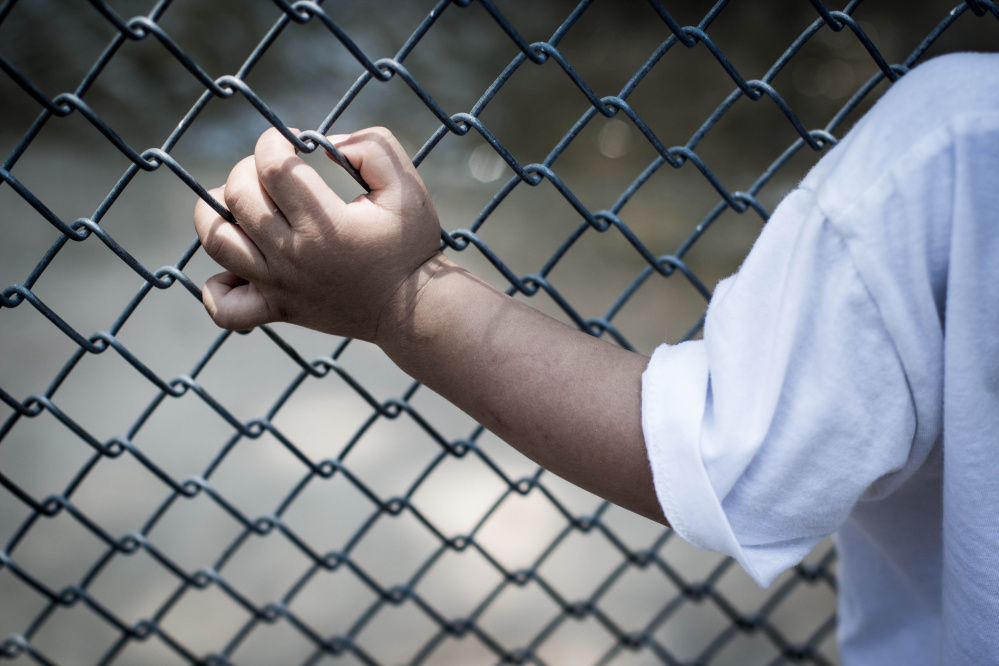The children of incarcerated parents lose a mom or a dad for the length of their sentence, but it doesn’t stop there.
Once the sentence is over, and after the child has endured the separation and disruption that came with it, the parent still has to face the stigma, loss of income and loss of opportunity that result from their time behind bars. Those effects can linger for years, and as much as they keep the parent from moving forward, they often also condemn the child to an early life of instability and poverty, ensuring that the effects will echo even longer.
It’s a cycle that cannot go unaddressed in Maine, where in 2011-12 roughly one in 12 children had at least one parent who was incarcerated at some point during their childhood. That’s the highest rate in New England, and the 14th highest nationally, according to a new report from the Annie E. Casey Foundation.
LOSING A PARENT
Nationally, the number of children with incarcerated parents has, not surprisingly, soared along with incarceration rates. From 1980 to 2000, there was a 500 percent increase in the number of kids with a father in prison or jail, driven largely by tough sentencing guided by drug-war policies.
More recently, those policies have been affecting women caught up in the opiate crisis – women make up a bigger proportion of the prison population than ever.
In Maine, the population of the one women’s prison, in Windham, has grown from fewer than 80 inmates in September 2014 to a daily average of 135 now, with another 70 or so women in a pre-release facility in Alfred.
That has left a lot of kids without at least one parent, putting pressure on the remaining parent – if he or she is involved – and grandparents to provide a home, guidance and the basic necessities while short a major source of income. It has forced the adults left in the child’s life to balance child care and employment. Often, it forces the child to move again and again as those arrangements are sorted out.
The various pressures and challenges push families further into impoverishment. One study cited in the Casey Foundation report found that the U.S. poverty rate would have fallen by 20 percent in one 24-year period were it not for the increase in incarceration.
And once the parent’s sentence is over, new problems arise. They often have court fines, legal fees and accumulated child support to pay, and a new life to start, but their conviction makes it difficult to find a job, and the time apart – and whatever behavioral problems caused it – can make it difficult to reconnect.
SUPPORT AND TRAINING
The Maine Department of Corrections said that in the past few years it has initiated new programs to help women in prison stay connected to families, including peer-parenting groups and the availability of online video chatting between inmates and their children.
But, as the foundation report suggests, additional supports are necessary to make sure children are being adequately taken care of, and inmates are receiving the training and education they’ll need when they are released.
Maine also has to continue to reform sentencing and bail guidelines so that parents are not unnecessarily incarcerated when alternatives exist that would keep their family intact.
And, of course, better access to drug treatment and a continuation of the good work being done with juvenile offenders would help keep Mainers out of jail in the first place.
It should be the goal to reduce the use of prisons and jails and spend the savings on community-based treatment, housing and re-entry support.
Maine should also join the “ban the box” movement. Twenty-three states, as well as federal agencies, do not allow employers – with some exceptions – to ask about criminal convictions on the initial employment application. That would keep employers from dismissing out of hand the applicants with criminal records, denying them an opportunity to showcase their skills and potential.
When too many people are incarcerated, and too little is done to help transition them back into society, the cost is enormous. When children are involved, the cost increases exponentially, and right now, Maine is paying that price far too often.
Send questions/comments to the editors.


